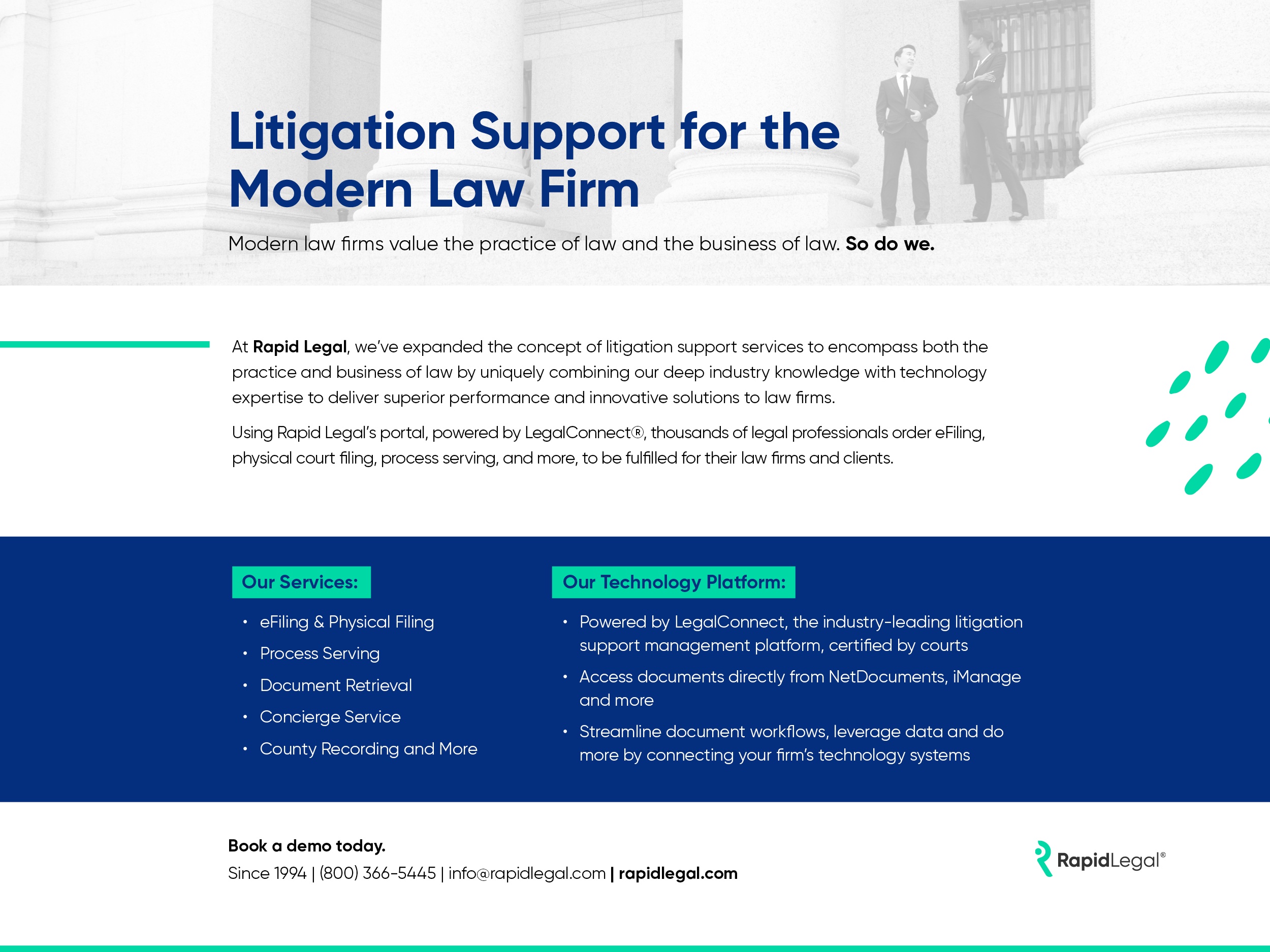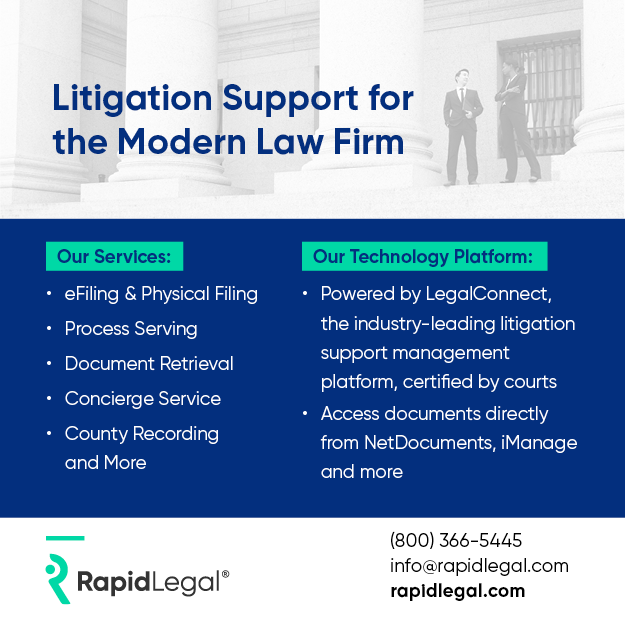Effective risk and compliance management requires efficient oversight of information and financial resources, which can be a daunting task without the right tools and strategies in place. Law firm practice management software can streamline these efforts across various areas. By providing a range of functions that cut down the time and cost involved in monitoring law firm activity, law firm practice management software can help firms meet their compliance obligations. Here’s where to start.
1. DOCUMENT DRAFTING
Contracts, agreements and legal filings are at the core of the practice of law, and any errors or omissions could lead to significant legal or financial consequences. To ensure accuracy and quality in document drafting, many law firms are turning to document automation software. Using templates and stored data to reduce manual effort speeds up the drafting process, allowing attorneys to generate documents by answering just a few simple questions.
Moreover, when compliance regulations change, updating the templates ensures that all staff have access to the most current forms and documentation. By adopting document automation software, law firms can improve their compliance efforts and reduce the risk of errors in critical documents.
2. DATA SECURITY
The safety and security of client data are of utmost importance to law firms, and any breach of that data will have potentially major ethical, reputational and legal implications for the firm. Unfortunately, the 2022 ABA Cybersecurity Tech Report revealed that 27% of law firms had experienced a form of security breach. With the high risk of cyberattacks and unauthorized access, it is essential that firms have robust security measures in place.
To ensure compliance with cybersecurity requirements, law firms must implement adequate security measures, train employees on best practices and stay up to date with evolving threats. One solution that has gained popularity is cloud-based legal practice management software. Cloud providers manage secure access, data encryption and protection, offering peace of mind for law firms.
When selecting a practice management provider, it is crucial to choose one that is audited and compliant with SOC 1/ISAE 3402 and SOC 2. These are rigorous compliance standards established by the American Institute of Certified Public Accountants to make sure businesses don’t take on undue cybersecurity risk. By choosing a compliant provider, law firms can more effectively ensure that their client data remains secure and protected.
3. CONFLICTS OF INTEREST
Managing conflicts of interest is critical for law firms to ensure that accepting a new client will not have an adverse effect on existing client relationships or ongoing cases. This can be particularly challenging for firms that work with large corporate clients or operate in multiple practice areas.
“Effective risk and compliance management requires efficient oversight of information and financial resources, which can be a daunting task without the right tools and strategies in place. Law firm practice management software can streamline these efforts across various areas.”
When firms store client data, case information and documents in disparate locations, applications and desktop folders, the process of identifying conflicts of interest is time-consuming and subject to error. By comparison, an effective practice management system will keep all data on clients, cases, documents and financial transactions in one system, where global searches can quickly identify potential conflicts.
4. ANTI-MONEY LAUNDERING LAWS
Complying with anti-money laundering laws and regulations is essential for law firms as violations can result in severe penalties and reputational damage. Law firms must conduct due diligence on clients and report suspicious activities to regulatory authorities. The consequences of knowingly or inadvertently facilitating money laundering can be extreme, so it’s crucial to take preventative measures.
One way to reduce the risk of improper financial activity by a client is to implement know-your-client policies when engaging a new client or accepting a new case. Law firms should also collect information about the client’s source of funds and perform background checks to ensure that the client is not involved in any illegal activities.
A strong practice management system can aid compliance efforts by providing integrated accounting and detailed financial analytics that help firms monitor financial transactions and identify out-of-bounds activity.
5. TRUST ACCOUNT MANAGEMENT
To comply with federal Interest on Lawyer Trust Accounts (IOLTA) laws that regulate lawyers as a fiduciary of the client, lawyers must not mix funds received from a client with any personal or firm operating funds. Trust accounting is a central component of ethics and compliance and unique to law firm management. However, many firms use standard business accounting software programs that are not designed to support trust accounts.
Instead of implementing workarounds in a general accounting program, firms can ensure compliance with IOLTA trust accounts using trust account management features within their law firm practice management system.
COMPLIANCE MANAGEMENT IS PRACTICE MANAGEMENT
To reduce risk and improve compliance in law firms, prioritizing education for all employees is key. Most law firm employees, from partners to administrative staff, have access to sensitive information and communications that, if mishandled, could raise serious compliance issues or risk a data breach. Effective training on the regulations, bar rules and compliant workflows and procedures can reduce risk by helping employees to understand the ethics and regulatory requirements of the firm and procedures for reporting any concerns.
Maintaining compliance with laws, rules and ethics requirements is a crucial aspect of running a law firm. With the stakes so high, it is essential to ensure that your law firm is fully compliant. Ensuring compliance can be complex, time-consuming and costly to address, particularly for firms that have manual processes, handle sensitive client information or operate in multiple jurisdictions with different legal and regulatory requirements.
Fortunately, law firm practice management software can streamline compliance efforts by providing a range of functions that cut down on the time and cost involved in monitoring firm activity. By leveraging these tools, law firms can simplify their compliance processes, improve accuracy and reduce the risk of compliance violations, freeing up resources to focus on core legal work.


